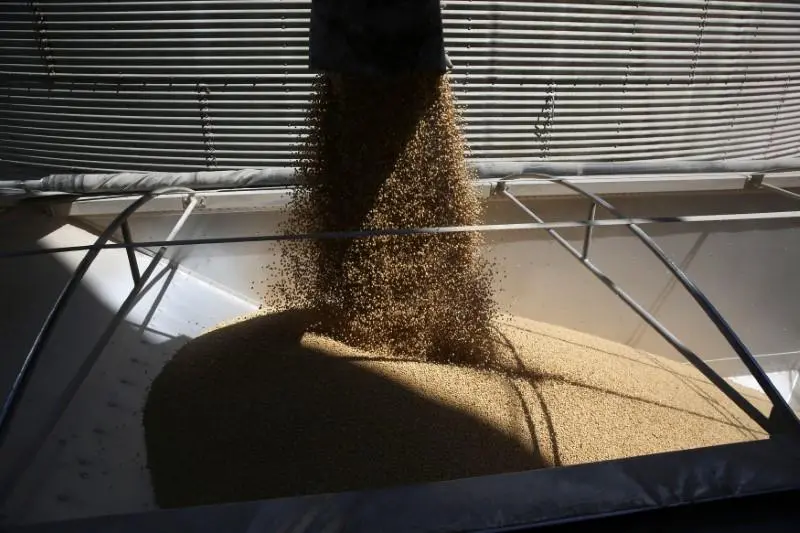PHOTO
ABU DHABI- The United Arab Emirates is operating its strategic grain silos at the port of Fujairah at 50 to 60 percent capacity on average, the managing director of the country's state Food Security Center said on Monday.
"Our average in a year is almost 50 to 60 percent," Khalifa al-Ali said on the sidelines of a conference in the capital Abu Dhabi.
The silos located at the port of Fujairah, which lies outside the Strait of Hormuz, have the capacity to store up to 300,000 tonnes of grain, enough for a strategic supply of around six months.
The UAE, which imports more than 90 percent of its food needs, sees Fujairah’s strategic location outside the strait as vital for ensuring the security of its food supplies.
The Strait of Hormuz is a vital Gulf oil export and food import route. Iran threatened in 2012 to block the strait if it came under attack as tensions rose with the West over Tehran’s disputed nuclear programme.
The Fujairah silos, in addition to holding a strategic reserve, are also used to store grain for re-export.
"With re-exports sometimes we reach 60 to 70 percent and that is because of the system, infrastructure we have, logistics we have, capacity we have and the most important thing which is policy and legislation," he said.
Ali said the country as a whole, including other silos in other emirates, had rice supplies to last five months, wheat to last eight to nine months and sugar to last eight to nine months.
"In general, if you're talking about what we have in the whole supply chain whether in the silos or in the system in the UAE in some commodities we are up to eight and nine months," Ali said.
(Reporting by Nafisa Eltahir Writing by Maha El Dahan Editing by Louise Heavens) ((Maha.Dahan@thomsonreuters.com; + 9712 4082101; Reuters Messaging: maha.dahan.thomsonreuters.com@reuters.net))





















